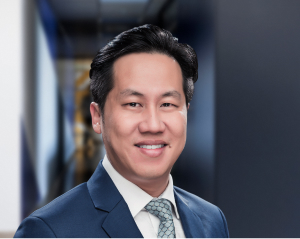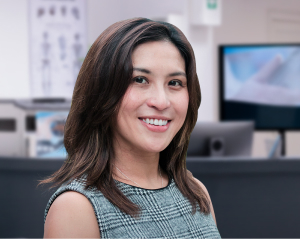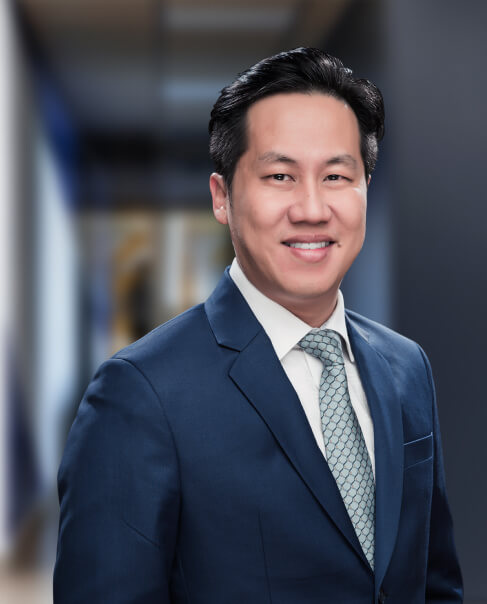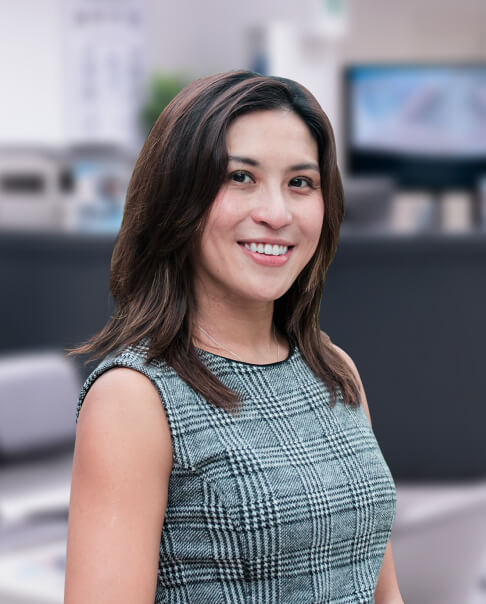
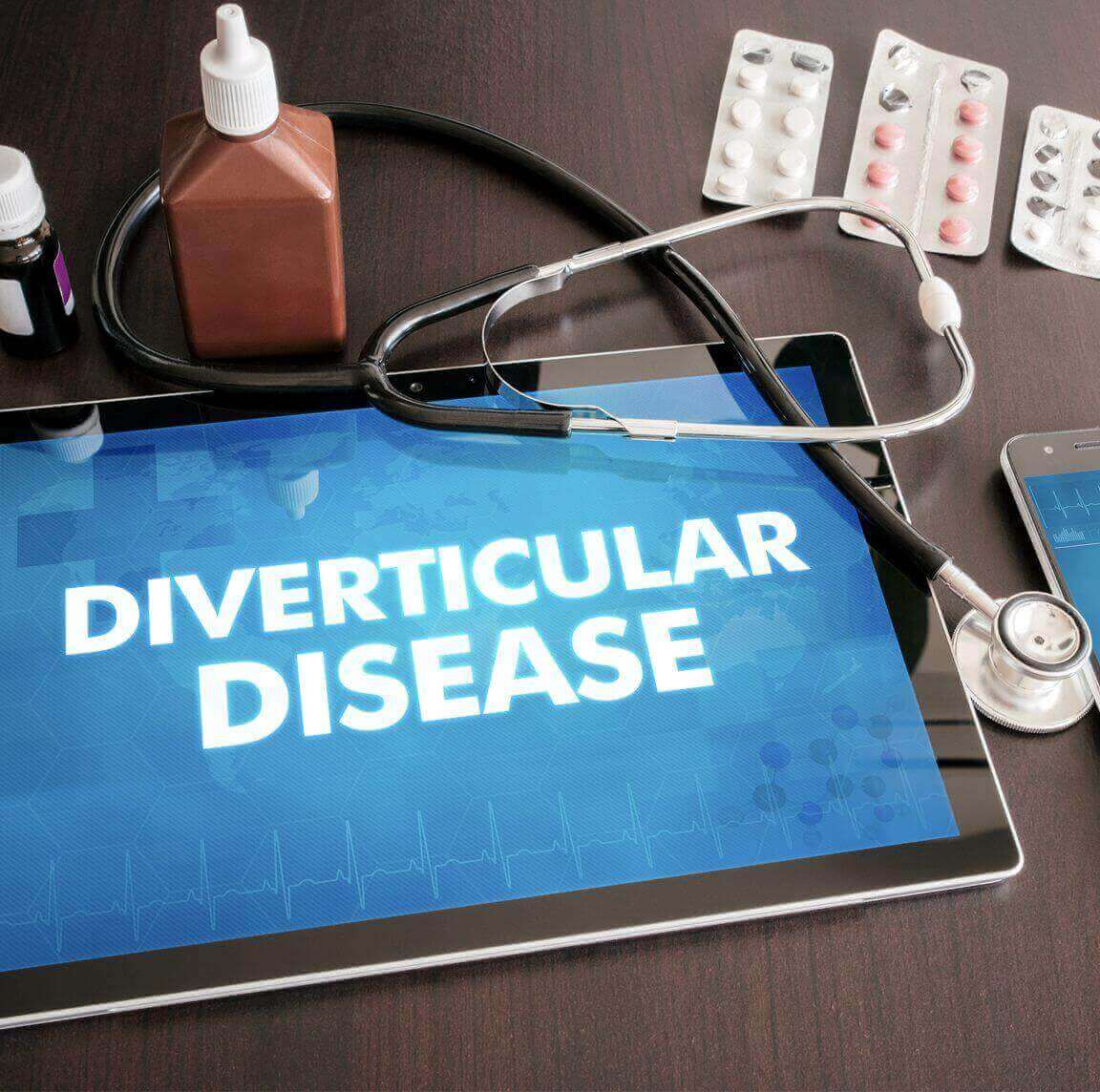
Diverticular disease is a condition where small bulges or sacs (diverticula) in the large intestine are developed and infected. When the diverticula are present but not infected, it is known as diverticulosis. Symptoms of diverticulosis are usually non-existent or minor and do not require any immediate medical care.
If diverticula become infected or inflamed, a colon surgery might be required to treat what is now known as diverticular disease.
The most extreme form of diverticular disease is known as diverticulitis, which is when the diverticuli becomes inflamed and infected.

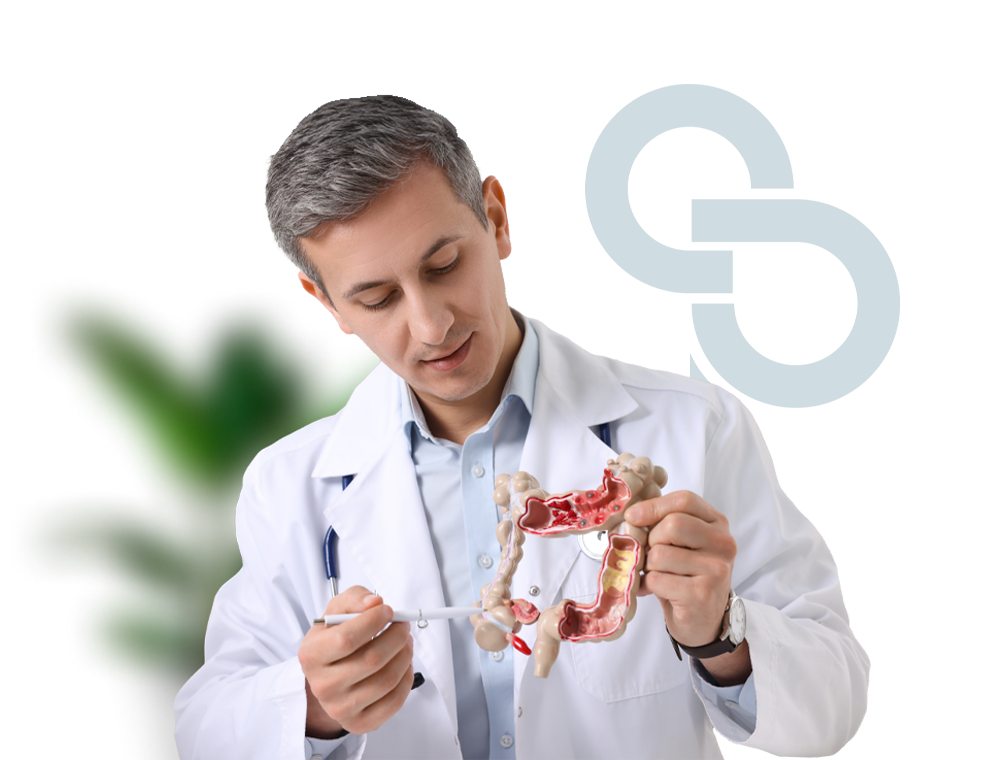
Are you at risk of diverticular disease?
Some early stage diverticular disease symptoms you should look out for are:
If you have the following risk factors, you may be at increased risk of diverticular disease.
It is important to note that diverticulosis may also not have any symptoms.
It is recommended that you book a consultation with a colorectal specialist in Singapore if you suspect that you may be suffering from diverticular disease.
How is diverticular
disease diagnosed?
Your medical history and symptoms will first be evaluated, and a physical exam a physical exam may then be performed to check for any abdominal tenderness and discomfort.
Other diagnostic methods include: blood tests to identify any signs of infection, a CT scan to identify abnormalities in the intestines, as well as Colonoscopy which will allow the doctor to clearly examine the inner lining of the colonic walls.
How is diverticular
disease treated?
In mild to moderate cases of diverticulosis, we will typically prescribe antibiotics and a liquid diet until your symptoms subside. Following that, you can start on a high-fibre diet as this will add bulk to your stool and help move it out of your digestive tract.
Severe cases of diverticular disease with prolonged bleeding may require you to be hospitalized and on bowel rest. This is to allow your digestive system to take a break and heal on its own.



Mount Elizabeth Medical Centre, Singapore 228510
